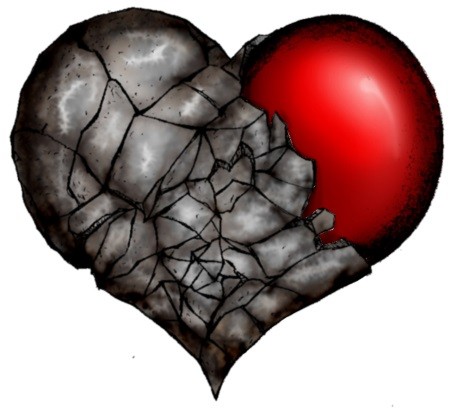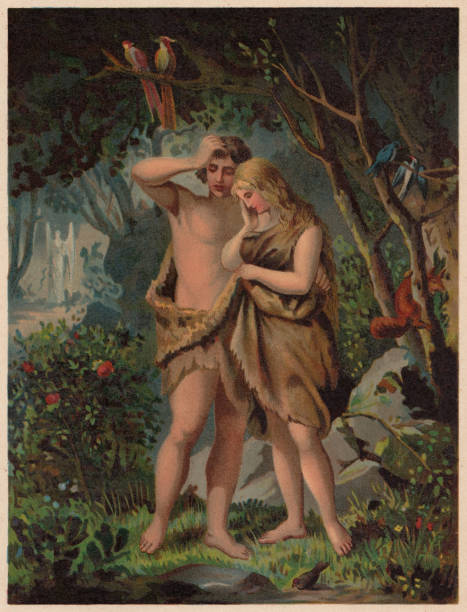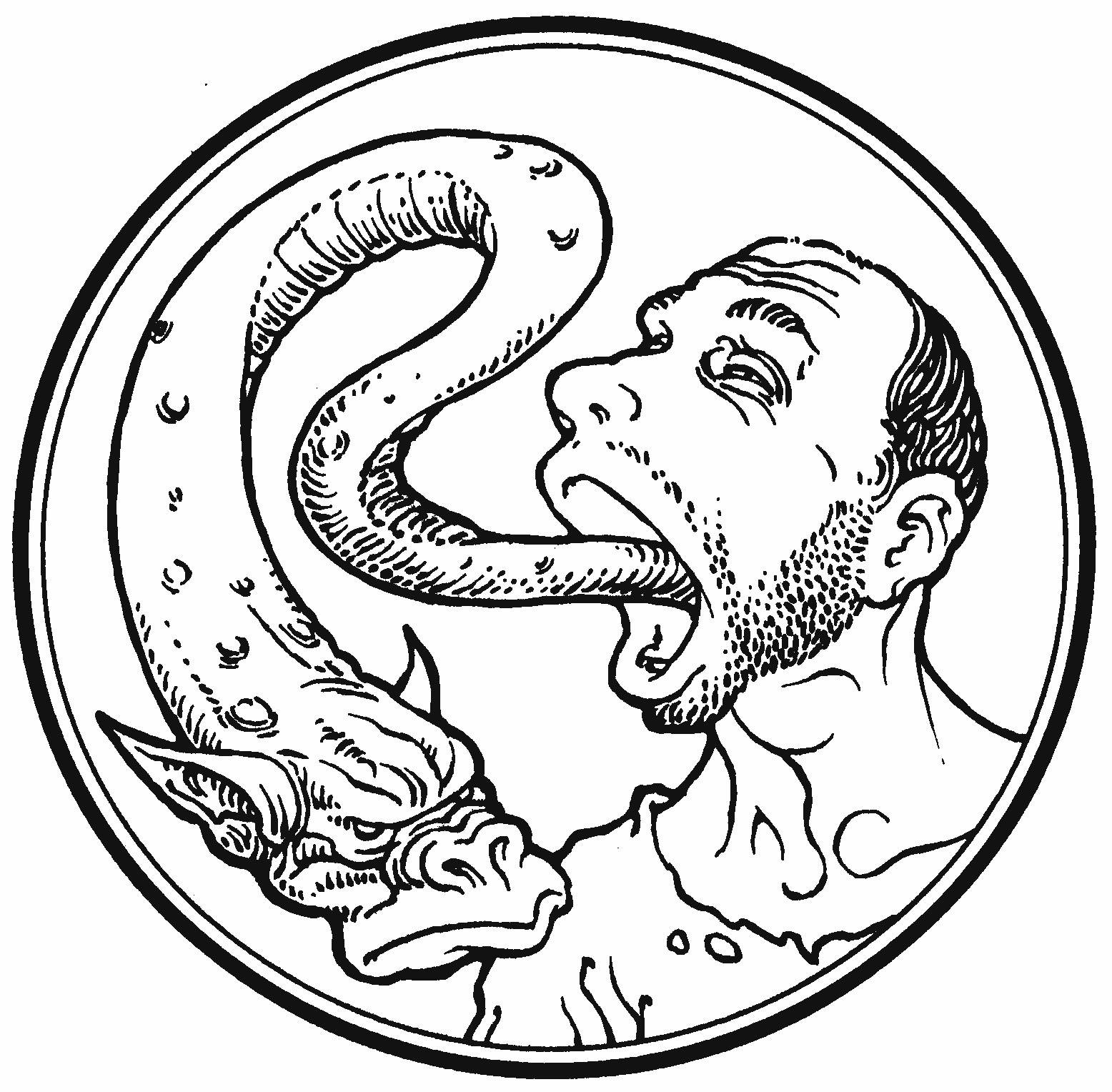Readings: Jeremiah 26:1–15 | Ephesians 5:1-9 | Luke 11:14–28
Text: Ephesians 5:1-9
The art on the bulletin cover is unsettling. It’s disturbing to think of a demon possessing a person. It’s grotesque because that’s not what the human body was made for. The demon, whether it was visible or invisible—doesn’t belong there. Neither should it have been for the man himself: the tongue was not made to hang loosely, nor the vocal folds to be absent of words.

Looking at it from this perspective, in His ministry, Jesus healed the other members of sin-broken people: ears were opened so that they could hear the Word, eyes were opened so that they could do their proper function of beholding God’s beautiful creation and witnessing the saving acts of God, lame feet were healed so that one might follow the Savior and go about the work He gives every day. He raises the dead and gives them back to their relatives in order to show that death is not natural and is not the way the world is supposed to be.
Another part of the body upon which Jesus works is the heart. Now, when we hear ‘heart’ today, we think of it as the seat of the emotions. That’s not how the ancients thought of it. The heart—lev in Hebrew and kardia in Greek—is the core of a person. Sometimes this is translated, “the inner man,” but not in the sense that we have a “ghost in the machine.” For our present life, our heart is tied to soul, mind, and body. They’re all bound up together, and God is the only surgeon who can treat one without breaking the others.
That’s what Jesus does—He operates on the heart. More accurately, He creates a new heart—“And I will give them one heart, and a new spirit I will put within them. I will remove the heart of stone from their flesh and give them a heart of flesh, 20 that they may walk in my statutes and keep my rules and obey them. And they shall be my people, and I will be their God.” (Ezekiel 11:19-20) This is the same thing we earnestly pray for after the sermon and before Holy Communion: “Create in me a clean heart, O God and renew a right Spirit within me.” (Ps. 51:10)

God the Holy Spirit’s work is that change of heart. It’s a necessary change, too. When it comes to malfunctions and diseases of the body, people are good at recognizing them. You go to the optometrist if your eyes don’t see clearly; the gastroenterologist for digestive issues; the neurologist for non-responsive muscles and seizures. But diagnosing the heart is another matter. Psychology can get at some of the processes of the mind, but doesn’t get to the Biblical heart of a person. That takes the ministry of the Spirit to “make ye straight what long was crooked” (Comfort, Comfort, Ye My People, LSB 347, st. 4).
That is what St. Paul is doing in the beginning of Ephesians 5:
1 Therefore be imitators of God, as beloved children. 2 And walk in love, as Christ loved us and gave himself up for us, a fragrant offering and sacrifice to God.
3 But sexual immorality and all impurity or covetousness must not even be named among you, as is proper among saints. 4 Let there be no filthiness nor foolish talk nor crude joking, which are out of place, but instead let there be thanksgiving.

We human creatures of God were first made in His image and likeness, so it is reasonable that we should resemble our Creator. But in so many ways we do not. That requires the diagnosis of the Great Physician, and His benchmarks that He gives us in His Word.
There are several things the Apostle Paul mentions which are “out of plumb” with our humanity:
- Sexual immorality (Greek: porneia) is the distortion of “in the beginning, He created them male and female, and the man shall cleave to His wife and the two shall become one flesh.” (Gen. 2) It’s when that one-flesh union, or a part of it is divorced (pun intended) from the rest of the intended unity between husband and wife. While the word, porneia, specifically referred to prostitution, people have been innovators when it comes to ways to “get the milk without buying the cow”—from the damage birth control has done, to the volume of explicit content that is available on TV and other screens.

This has become so prevalent in our era, that it’s increasingly difficult to avoid it and protect our children from being influenced and have their sexuality misshapen by it. By a kind of saturation of it, we have become partially numb to this abuse of what is meant to be private between a man and his wife.
- Impurity (uncleanness) – Sexual immorality isn’t the only thing that results from our deformed humanity. This same word, uncleanness, is used in Romans 1:24 to describe people following the lusts of their hearts, dishonoring their bodies after having exchanged the truth of God for a lie and serving the creature rather than the Creator.

To identify what’s wrong here, we again return to the creation of man and woman. We are embodied souls. Our body is part of our existence, so much so that, when we are adopted as God’s children in Baptism, our body actually becomes a temple for the Holy Spirit (1 Cor. 6:19). Uncleanness (even in much of the Levitical law) describes the misuse or dysfunction of the glorious creation of God which is the human body. “My body, my choice” echoes the cry of servants who have appropriated their Master’s property for their own benefit.
- Covetousness – The Greek word literally means being filled with having. This is a deformity of our will. It’s so important—and slips past our notice—that it also is called out by the last of the Commandments. To lust after something God hasn’t given you truly is sin. It’s not a matter of how much you have, but contentment with what your Creator has provided. Whatever the historical reasons, this malady isn’t cast in such a negative light in our culture, but it is equally enslaving. Because we are surrounded by it and it’s nearly all we’ve known in our lifetimes, it’s hardly noticed. Covetousness drives the consumer market, the loan industry, credit card debt, and casinos.
- The next are distortions of how we use our tongue: Filthiness (obscenity, deformity, ugliness), foolish talk (lit: the words of fools), and crude joking (ribaldry). These describe taking a sick satisfaction with, or approval of, the way things are in this world. St. James puts it condemningly-well when he writes,

“So also the tongue is a small member, yet hit boasts of great things. How great a forest is set ablaze by such a small fire! And the tongue is a fire, a world of unrighteousness. The tongue is set among our members, staining the whole body, setting on fire the entire course of life, and set on fire by hell. For every kind of beast and bird, of reptile and sea creature, can be tamed and has been tamed by mankind, but no human being can tame the tongue. It is a restless evil, full of deadly poison. With it we bless our Lord and Father, and with it we curse people who are made in the likeness of God. From the same mouth come blessing and cursing. My brothers, these things ought not to be so.” (James 3:5-10)
From all this (and there is certainly more), it’s clear how much we need to be worked over in order to resemble God’s creation of us. For me, it would be like holding up an X-ray of a healthy spine next to mine with scoliosis which is severely bent. God, through His Word, holds this perfect overlay up and it shows all that is deformed in us.
It’s all too common for us to resemble the image of our father Adam, and the other people around us. Seeing that the society around us either turns a blind eye or celebrates these maladies as good, it’s that much harder for beloved children of God to live in between our new birth in Baptism to when our time in these evil days comes to an end [Eph. 5:19]. No wonder He must continually call us back to what we were created for and what we, as His children, are destined toward.

But what shall we do? Wouldn’t it be great if we could put the proverbial genie back in the bottle on these things? I’m afraid that won’t be enough for a couple reasons. One, as several of the Church’s teachers have noted, humanity is gradually getting worse—weaker in self-control, more depraved, willing to let slide what was previously outrageous (see Augsburg Confession, XXIII 14. The second reason, connected to that, is that St. Paul says that outward prohibitions may stop the action for a while, but comments, “These have indeed an appearance of wisdom in promoting self-made religion and asceticism and severity to the body, but they are of no value in stopping the indulgence of the flesh.” (Colossians 2:23) What we need is change on the inside, a new heart.
The first thing we do is repent and admit that we have gone with the crowd (even if up until now you didn’t know any better!), and that we have followed the desires of our sinful minds and hearts.

The second is to ask the Lord to drive out what is evil and grotesque within us—the evil spirit that is at work in this age, as Paul described earlier to the Ephesians: “the spirit that is now at work in the sons of disobedience— among whom we all once lived in the passions of our flesh, carrying out the desires of the body and the mind, and were by nature children of wrath, like the rest of mankind.” (Ephesians 2:1-3) Remember that disturbing bulletin cover art? Yes, that’s what needs to happen to us when we have been enslaved by the devil’s lies and our own lusts. And by His Word and the Holy Spirit, the Lord Jesus is the stronger man of the Gospel reading (Luke 11:14-28), and we are those plundered from the devil and the world, for God to adopt us as beloved children!
Third, we need to pray every day for the Holy Spirit to create that new, clean heart within us. He is called the Holy Spirit because His work is to make God’s people holy, which He does from the inside, out.
We will sin and we will fall short of the glory God has created us for. We are not able to achieve perfection, and God doesn’t demand that of us. That isn’t an excuse to give in or give up the struggle. Fight the good fight, press on toward the goal of the upward call in Christ Jesus [1 Tim. 6:12, Phil. 3:14]. That is, knowing that your God created you for better, do your best to flee sexual immorality, avoid uncleanness, foster contentment, and bridle your tongue. Yet, it’s even in our weakness, our deformity, our cries of “I believe, help my unbelief” [Mark 9:24], our groaning over failing for the thousandth time in our wretched body of death [Rom. 7:25] that the beauty of our Savior shines.

“Those who are well have no need of a physician, but those who are sick. I have not come to call the righteous but sinners to repentance.” (Luke 5:31-32) Sinners have a Savior. So, be a sinner and confess your sins, believing that Jesus has the power to save you from what you’ve been, what you can’t seem to shake, and even death from which none of us can escape. Except, we will in Jesus who has both broken the power of sin and of death.
Finally, St. Paul started this all out by telling us, “Walk in love, as Christ loved us and gave Himself up for us, a fragrant offering and sacrifice to God.” This is the key to our life: That Christ has loved us in our abysmal condition and gave Himself up that we might be beautiful in God’s sight, called “The Redeemed of the Lord” with renewed hearts and minds. We are about to sing Psalm 51:10-12 in the Offertory, but would you please pray with me the verses which follow:
“Then I will teach transgressors your ways, and sinners will return to you. Deliver me from bloodguiltiness, O God, O God of my salvation, and my tongue will sing aloud of your righteousness. O Lord, open my lips, and my mouth will declare your praise. For you will not delight in sacrifice, or I would give it; you will not be pleased with a burnt offering. The sacrifices of God are a broken spirit; a broken and contrite heart, O God, you will not despise. Do good to Zion in your good pleasure; build up the walls of Jerusalem; then will you delight in right sacrifices, in burnt offerings and whole burnt offerings; then bulls will be offered on your altar.” Amen.


Leave a Reply